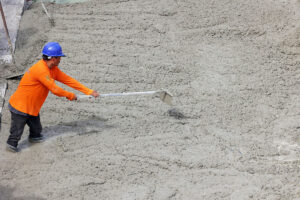Agencies’ incomplete documents delay PPP projects — NEDA chief
MANY public-private partnership (PPP) projects face delays in approval because implementing agencies fail to complete the requirements, the National Economic and Development Authority (NEDA) said. “The causes of delays are incomplete submissions of implementing agencies. It’s not NEDA. We are an easy recipient of the blame because we are the reviewers,” NEDA Secretary Arsenio M. […]

MANY public-private partnership (PPP) projects face delays in approval because implementing agencies fail to complete the requirements, the National Economic and Development Authority (NEDA) said.
“The causes of delays are incomplete submissions of implementing agencies. It’s not NEDA. We are an easy recipient of the blame because we are the reviewers,” NEDA Secretary Arsenio M. Balisacan told the Senate Finance Committee on Wednesday.
This came after Senate Finance Committee Chair Mary Grace Natividad S. Poe-Llamanzares noted that the NEDA is often blamed for delays in PPP project implementation.
“Oftentimes there are many good PPP project proposals, but there’s a bottleneck in the NEDA. And some of them are pretty obvious like airport development, but the NEDA is pointed out for being slow,” she said in mixed English and Filipino.
The Philippine government is banking on PPP projects to implement its “Build Better More” infrastructure program, given the tight fiscal space.
However, Mr. Balisacan said implementing agencies should make sure they have completed staff work on PPP projects before submitting them to the NEDA.
“We cannot bring those projects to the NEDA Board, chaired by the President, with incomplete staff work. So, our appeal to the project proponents is to complete the proposal before you bring it in because it will only be delayed,” he said in mixed English and Filipino.
Mr. Balisacan said proponent agencies are required to submit a feasibility study for the project.
“If the feasibility study doesn’t provide the information that we are looking for, then there is no way we can advise the President whether this project is economically beneficial or not,” he said.
“Because at the end, at NEDA, what we are tasked to do is to assure the taxpayers that the projects that we approve will yield benefits that are greater than the cost.”
Under Republic Act No. 11966 or the PPP Code, PPP projects above the P15-billion threshold will still be submitted to the NEDA Board, while those below the threshold that do not require government subsidy will be sent to the implementing agency.
Projects that require government subsidy must be sent to the NEDA-Investment Coordination Committee (ICC), while local projects go under their respective councils.
All PPP proposals to the government must be approved within 120 days.
There are 164 PPP projects in the pipeline valued at P3.2 trillion, latest data from the PPP Center showed. Of the total, 90 are solicited projects, while 74 are unsolicited.
Nigel Paul C. Villarete, senior adviser on PPP at the technical advisory group Libra Konsult, Inc., said that PPP projects are usually delayed due to rushed submissions and changes in leadership.
“Oftentimes, they (agencies) resort to shortcuts, resulting in missing documents, some of which are important and crucial, thus causing delays,” he said in a Viber message.
“PPPs usually are huge multi-year projects which cut across government’s six-year and three-year terms, oftentimes involving changes in project leaderships. More often than not, the new project managers are not familiar with the projects,” he added.
Mr. Villarete cited the need for a special interagency monitoring unit with long-term officials who could provide a “historical cross-administration” assessment of PPP projects.
Meanwhile, the Surallah-T’Boli-San Jose Road in South Cotabato was the latest project added to the list of completed infrastructure flagship projects (IFPs) since the beginning of the Marcos administration, Mr. Balisacan told the hearing.
The Flood Risk Improvement and Management Project for the Cagayan de Oro River was also completed this year, Mr. Balisacan said. Both completed in 2023 were the Samar Pacific Coastal Road Project and the Integrated Disaster Risk Reduction and Climate Change Adaptation Measures in Pampanga Bay Project.
The government’s pipeline has 186 IFPs with a projected total cost of P9.6 trillion. — Beatriz Marie D. Cruz












